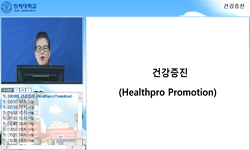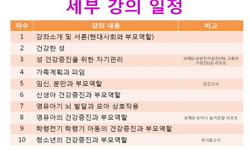Objective : Qigong has been reported as an effective for post-mastectomy women. It consists of a series of postures combined with slow, smooth, graceful movements, and is considered a low intensity exercise. In this study, a specialist of Qigong devel...
http://chineseinput.net/에서 pinyin(병음)방식으로 중국어를 변환할 수 있습니다.
변환된 중국어를 복사하여 사용하시면 됩니다.
- 中文 을 입력하시려면 zhongwen을 입력하시고 space를누르시면됩니다.
- 北京 을 입력하시려면 beijing을 입력하시고 space를 누르시면 됩니다.

기공(氣功)이 유방절제술을 받은 여성의 건강증진에 미치는 영향 = The Effect of Qigong on the Health Promotion in Post-mastectomy Women
한글로보기https://www.riss.kr/link?id=A100884060
-
저자
김이순 (동의대학교) ; 김경철 (동의대학교) ; 곽이섭 (동의대학교) ; 이해웅 (동의대학교) ; Kim, Yi-Soon ; Kim, Gyeong-Cheol ; Kwak, Yi-Sub ; Lee, Hai-Woong
- 발행기관
- 학술지명
- 권호사항
-
발행연도
2010
-
작성언어
Korean
- 주제어
-
등재정보
KCI등재
-
자료형태
학술저널
-
수록면
37-49(13쪽)
- 제공처
-
0
상세조회 -
0
다운로드
부가정보
다국어 초록 (Multilingual Abstract)
Objective : Qigong has been reported as an effective for post-mastectomy women. It consists of a series of postures combined with slow, smooth, graceful movements, and is considered a low intensity exercise. In this study, a specialist of Qigong developed a Qigong program for post-mastectomy women in a community. The object of this research is to evaluate the effect of Qigong on a subjective symptom scale, on the grade of discomfort and pain in everyday life, BMI, fat(%), muscular strength, shoulder joint movement, in post-mastectomy women. Methods : The study used a non-equivalent control group non-synchronized design. The experimental group received a Qigong 3 times a week for 12 weeks from September 7th to December 28th in 2009. The subjects were 40 patients are divided into 25 persons in experimental groups and 15 persons in contrastive group. The data were analyzed with descriptive statistics, chi-square test, t-test, Mann-Whitney U test. A P-value less than .05 was considered significant by 2-tailed test. All statistical analyses were performed with SPSS win(ver 12.0). Results : The results were as follows : The score in the subjective symptom(p=.040), and score of anxiety (p=.024), fat(%)(p=.007) were significantly decreased after Qigong program. The values for shoulder flexibility (left : p=.010, right : p=.008), and Muscular strength(grip power)(left : p=.021, right : p=.029) significantly increased after Qigong program. And Flexion(left ; p=.029), Extension(left : p=.001, right : p=.038), Adduction(left ; p=.001, right ; p<0.001) were also significantly increased after Qigong Conclusions : The Qigong is an effective health promotion program for post-mastectomy women.
동일학술지(권/호) 다른 논문
-
사물탕의 용량별 투여가 임신 랫드와 태자에 미치는 독성학적 연구
- 대한예방한의학회
- 전성진
- 2010
- KCI등재
-
일엽추 추출물이 RANKL 유도 RAW264.7 Cell의 유전자 발현에 미치는 영향
- 대한예방한의학회
- 이효근
- 2010
- KCI등재
-
ICR 마우스를 이용한 인삼패독산(人蔘敗毒散)의 급성독성 연구
- 대한예방한의학회
- 음현애
- 2010
- KCI등재
-
미용업종사자들의 근골격계관련작업이 직무스트레스에 미치는 영향
- 대한예방한의학회
- 오선영
- 2010
- KCI등재




 ScienceON
ScienceON






